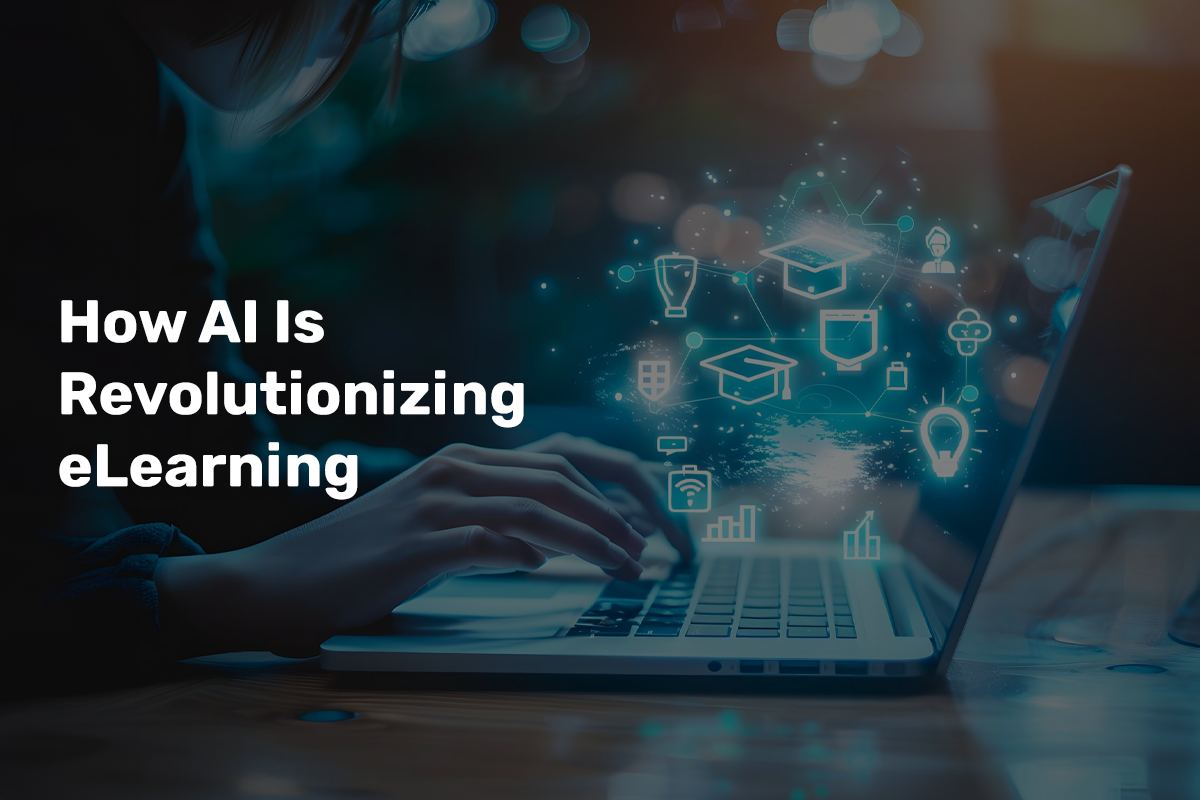Artificial Intelligence (AI) is making a big impact on the world of online education, often referred to as eLearning. By integrating AI into eLearning platforms, we can significantly enhance how students learn and interact with their educational content. AI helps to tailor learning experiences to individual needs, making education more personalized and effective. It can analyze vast amounts of data to understand each student’s unique learning style and progress, allowing for customized recommendations and adaptive learning paths.
However, the benefits of AI in eLearning go beyond personalization. AI can automate tasks such as grading and feedback, freeing educators to focus more on teaching and less on administrative duties. With tools like natural language processing, AI can even respond to student queries and create interactive learning environments. Additionally, AI-driven analytics provide valuable insights into student performance, helping educators identify areas where students might need extra help. Overall, AI in Edtech is revolutionizing eLearning by making it more engaging, efficient, and tailored to individual needs. For instance, AI can reduce grading time by up to 50% and increase student engagement by up to 40%.
What is AI in eLearning?
AI in eLearning refers to the integration of artificial intelligence technologies into online education platforms to enhance learning experiences, personalize content, and improve educational outcomes. AI-powered eLearning systems can analyze vast amounts of data to tailor courses to individual learners’ needs, providing personalized recommendations and adaptive learning paths. This ensures that each student receives content suited to their learning pace and style.
Moreover, AI can automate administrative tasks, such as grading and feedback, freeing educators to focus on teaching. Natural language processing (NLP) allows AI to understand and respond to student queries, creating interactive learning environments. AI-driven analytics also provide insights into student performance, enabling timely interventions for those who may struggle. Overall, AI in eLearning fosters a more engaging, efficient, and effective educational experience.
5 Ways AI Is Revolutionizing eLearning
1. Personalized Learning
AI is transforming eLearning by enabling highly personalized learning experiences. Through machine learning algorithms, AI can analyze individual student data, including learning styles, pace, and performance, to tailor educational content specifically to each learner’s needs. This means students receive recommendations for resources, exercises, and learning paths that align with their unique strengths and areas for improvement. For example, if a student struggles with a particular concept, the AI can suggest additional practice materials or alternative explanations until the student masters the topic. This level of personalization helps in addressing diverse learning needs and promotes more effective learning outcomes, as students engage with content that is relevant and appropriate to their level of understanding.
2. Intelligent Tutoring Systems
Intelligent Tutoring Systems (ITS) leverage AI to provide personalized tutoring and support similar to that of a human tutor. These systems use advanced algorithms to assess students’ responses, identify gaps in knowledge, and offer targeted interventions. For instance, an ITS can provide instant feedback on exercises, pose follow-up questions to probe deeper understanding and adjust the difficulty level of tasks based on the student’s progress. This creates an interactive and responsive learning environment where students receive real-time assistance and guidance, making learning more dynamic and effective.
3. Automated Grading Assessment
AI simplifies and accelerates the grading and assessment process by automating these tasks. AI systems can quickly evaluate assignments, tests, and quizzes, providing immediate feedback to students. This not only saves time for educators but also ensures consistency and objectivity in grading. AI can handle a range of assessment types, from multiple-choice questions to more complex open-ended responses. Additionally, AI tools can analyze patterns in student performance to offer insights into common areas of difficulty, helping educators tailor their instruction accordingly.
4. Virtual Reality (VR) and Augmented Reality (AR)
AI enhances Virtual Reality (VR) and Augmented Reality (AR) technologies to create immersive and interactive learning experiences. VR can transport students to virtual environments for hands-on practice in a simulated setting, while AR overlays digital information in the real world to enrich learning activities. For example, VR can simulate historical events or scientific phenomena, allowing students to explore these topics engagingly. AR can be used to provide contextual information or interactive elements within physical textbooks or learning materials. These technologies make learning more engaging and practical, fostering a deeper understanding of complex subjects through experiential learning.
5. Learning Analytics
AI-driven learning analytics provide educators with valuable insights into student performance and behaviour. By analyzing data from various sources, including interactions with learning materials, assessments, and participation metrics, AI can identify trends and predict outcomes. This helps educators understand how students are engaging with the content and where they might need additional support. Learning analytics also allows for the creation of detailed reports and dashboards that highlight areas of success and concern, enabling more informed decision-making about instructional strategies and interventions. This data-driven approach enhances the ability to support students effectively and improve overall educational quality.
Conclusion
AI is profoundly transforming eLearning by making it more personalized, interactive, and efficient. With capabilities ranging from tailored learning experiences to automated grading and immersive VR and AR environments, AI enhances both teaching and learning processes. This evolution not only boosts educational outcomes but also streamlines administrative tasks, allowing educators to focus more on teaching. As the field of eLearning continues to advance, integrating AI-driven solutions will play a crucial role in shaping the future of education. For those looking to leverage these innovations, investing in custom eLearning development can provide tailored solutions that meet specific educational needs and objectives, ensuring a more effective and engaging learning experience.

